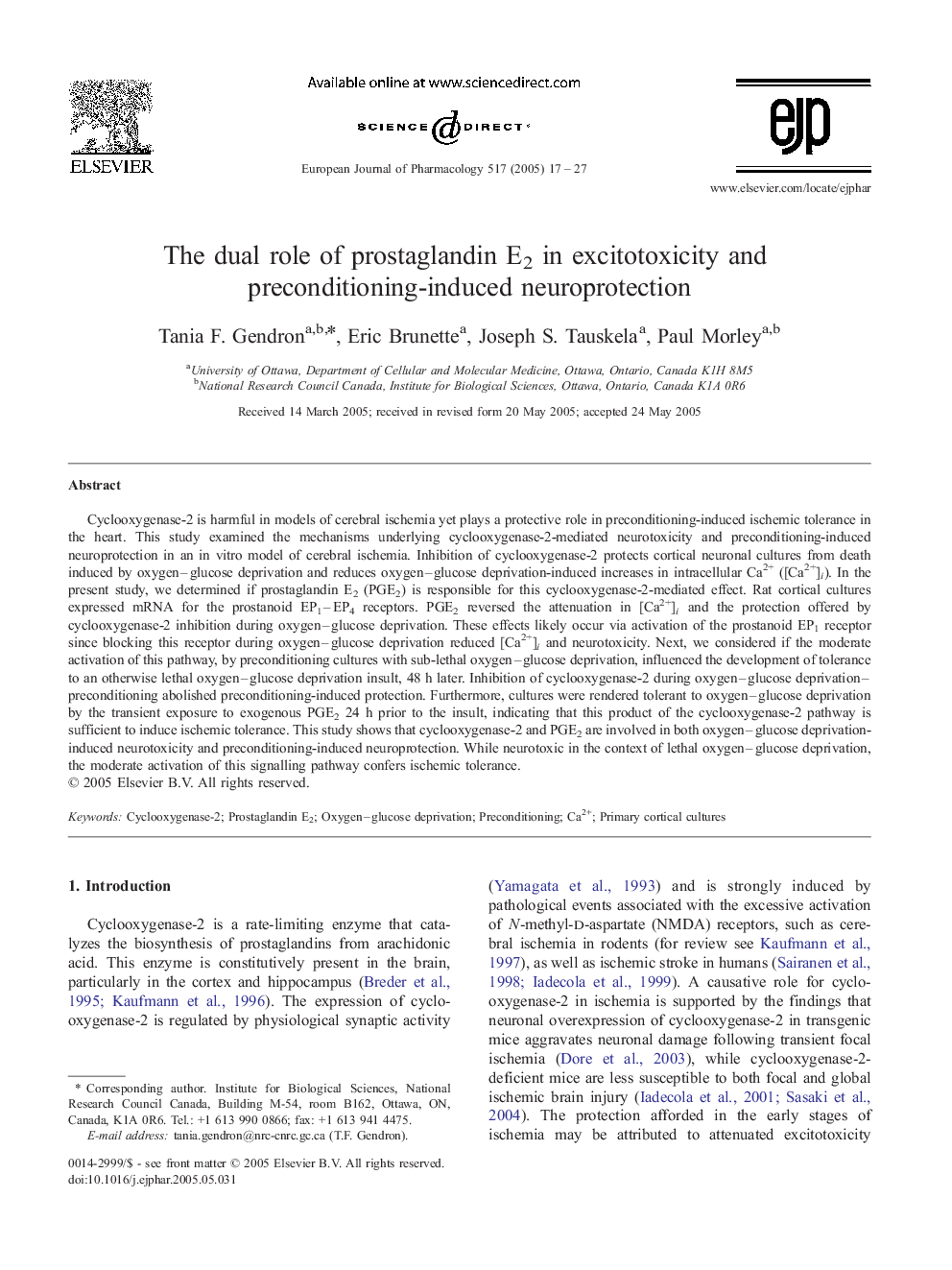| Article ID | Journal | Published Year | Pages | File Type |
|---|---|---|---|---|
| 9921234 | European Journal of Pharmacology | 2005 | 11 Pages |
Abstract
Cyclooxygenase-2 is harmful in models of cerebral ischemia yet plays a protective role in preconditioning-induced ischemic tolerance in the heart. This study examined the mechanisms underlying cyclooxygenase-2-mediated neurotoxicity and preconditioning-induced neuroprotection in an in vitro model of cerebral ischemia. Inhibition of cyclooxygenase-2 protects cortical neuronal cultures from death induced by oxygen-glucose deprivation and reduces oxygen-glucose deprivation-induced increases in intracellular Ca2+ ([Ca2+]i). In the present study, we determined if prostaglandin E2 (PGE2) is responsible for this cyclooxygenase-2-mediated effect. Rat cortical cultures expressed mRNA for the prostanoid EP1-EP4 receptors. PGE2 reversed the attenuation in [Ca2+]i and the protection offered by cyclooxygenase-2 inhibition during oxygen-glucose deprivation. These effects likely occur via activation of the prostanoid EP1 receptor since blocking this receptor during oxygen-glucose deprivation reduced [Ca2+]i and neurotoxicity. Next, we considered if the moderate activation of this pathway, by preconditioning cultures with sub-lethal oxygen-glucose deprivation, influenced the development of tolerance to an otherwise lethal oxygen-glucose deprivation insult, 48 h later. Inhibition of cyclooxygenase-2 during oxygen-glucose deprivation-preconditioning abolished preconditioning-induced protection. Furthermore, cultures were rendered tolerant to oxygen-glucose deprivation by the transient exposure to exogenous PGE2 24 h prior to the insult, indicating that this product of the cyclooxygenase-2 pathway is sufficient to induce ischemic tolerance. This study shows that cyclooxygenase-2 and PGE2 are involved in both oxygen-glucose deprivation-induced neurotoxicity and preconditioning-induced neuroprotection. While neurotoxic in the context of lethal oxygen-glucose deprivation, the moderate activation of this signalling pathway confers ischemic tolerance.
Keywords
Related Topics
Life Sciences
Neuroscience
Cellular and Molecular Neuroscience
Authors
Tania F. Gendron, Eric Brunette, Joseph S. Tauskela, Paul Morley,
